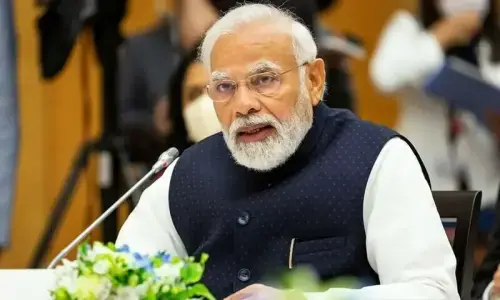 WASHINGTON: Wolfowitz was on the endowment’s board – which is how Riza first met him, according to Turkish journalist Cengiz Candar, a friend of the couple. “Shaha was married at the time and Paul was married,” Candar recalled, and it wasn’t until late 1999 – after Riza divorced and Wolfowitz had separated from his wife of 30 years, Clare Selgin Wolfowitz – that the couple began dating.
WASHINGTON: Wolfowitz was on the endowment’s board – which is how Riza first met him, according to Turkish journalist Cengiz Candar, a friend of the couple. “Shaha was married at the time and Paul was married,” Candar recalled, and it wasn’t until late 1999 – after Riza divorced and Wolfowitz had separated from his wife of 30 years, Clare Selgin Wolfowitz – that the couple began dating.
Riza also worked at one point at the Iraq Foundation, a group that supported Iraqi exiles agitating for the overthrow of Saddam Hussein. Her views were said to be admired by Ahmed Chalabi, the patrician Iraqi expatriate whom then-deputy defence secretary Wolfowitz and others in the Pentagon backed to succeed Hussein while they were drawing up war plans. (In April 2003, after the US invasion, Riza took a month’s leave from the World Bank to work with Iraqi women in Baghdad on forming a new government. Defence Department documents show that Wolfowitz, then still at the Pentagon, played a role in sending her.)
“Shaha was a very early promoter of the idea that we should not exclude the Middle East from the process of democratic change,” says Ellen Laipson, president of the Henry L. Stimson Center, an international peace organisation, who has known Riza for years.
Riza started at the World Bank as a consultant in July 1997 and became a full-time employee in 1999. According to her resume, she speaks five languages, including Arabic and Turkish. When she and Wolfowitz began quietly dating, Wolfowitz was dean of the School of Advanced International Studies at Johns Hopkins University but headed for the No. 2 job at the Pentagon with the incoming Bush administration.
Though Wolfowitz told friends he was divorcing, it remains unclear whether he and Clare ever did so.
Clare Wolfowitz would only say in an e-mail: “Shaha Riza is a dedicated and serious reform advocate who has my respect. I hope she will be able to continue her work in spite of everything.”
In 2004, Riza organised in Beirut a major conference of North African and Middle Eastern groups pushing freedom and reform after the fall of Hussein – attempting to capitalise on a central neo-conservative theme: that planting democracy in Iraq would ignite change in autocratic, male-dominated regimes of the region. “She was quite formidable because she almost single-handedly brought everyone together,” recalls Chibli Mallat, a Lebanese law professor who also helped organise the initiative. “I would have never participated myself had it not been for my sense of her probity and professionalism, and indeed her vision.”The manifesto that emerged from the 40 civil society groups and democracy advocates, and later presented to Group of Eight foreign ministers, said: “Dictatorship must now be declared a crime against humanity.”
“It was extraordinary,” says Mallat, now a visiting professor at Princeton. Yet Riza did not seek the spotlight for her role, he says.
Wolfowitz had detractors at the bank before setting a foot in the door. “People at the World Bank were ill-disposed of him from Day One,” says Desmond Lachman, a resident fellow and bank watcher at the conservative American Enterprise Institute. “His girlfriend is a sideshow.”
After Wolfowitz assumed the bank’s presidency, Riza went briefly to the State Department, where her colleagues included Elizabeth Cheney, deputy assistant secretary of state for Near Eastern affairs, and the daughter of Vice-President Cheney. Later Riza transferred to become an adviser to the president and board of the Foundation for the Future, a non-profit entity partially supported by the State Department to promote democracy in the Middle East and North Africa.
Wolfowitz and Riza’s romantic involvement was for years one of the most well-guarded secrets in Washington and the Arab world. “It wasn’t known at all,” says Mallat, whom Riza introduced to Wolfowitz and Elizabeth Cheney just before the Iraq war started in 2003. “She was extremely careful at the time; and it is not the kind of question you ask,” says Mallat.
In the past, Riza has expressed concern about ramifications from her relationship with Wolfowitz. Even so, she attended private parties in Wolfowitz’s company with prominent Washingtonians, including journalists.
The public airing of their private life together has taken a toll on both sides.
Will their relationship survive this Washington tempest?
“I think so,” says journalist Candar, who has known Riza for 22 years. “There is nothing that suggests the opposite for me at the moment.”—Dawn/ The Washington Post News Service
Concluded






























